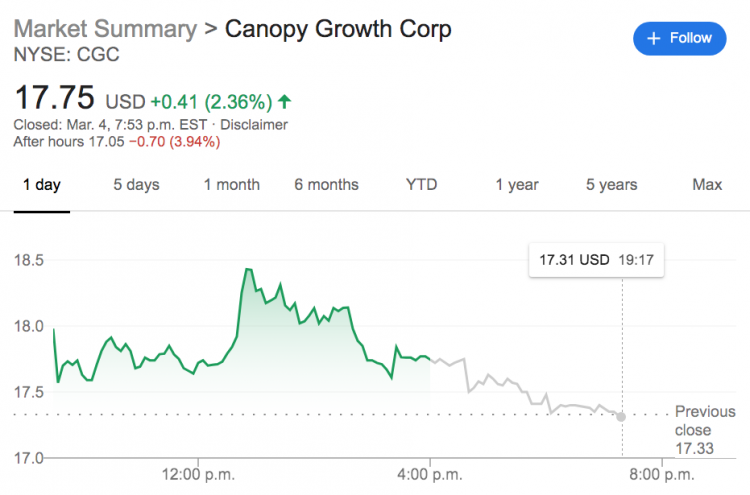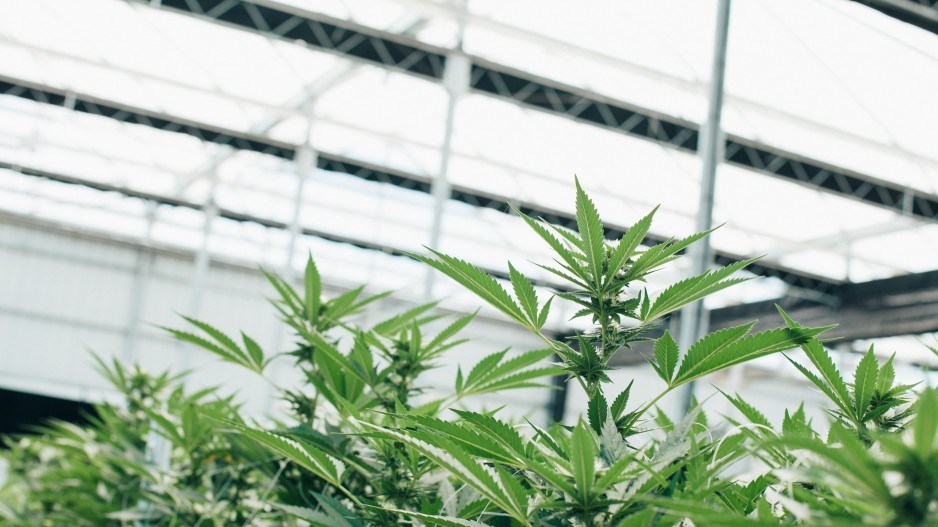What happened: One of the largest cannabis growers in the world, Canopy Growth Corp. (TSX:WEED; NYSE:CGC), plans to close two B.C. greenhouses, thereby laying off about 500 workers, while scuttling plans to open a growing facility in Ontario’s Niagara region.
Why this matters: Job cuts hurt the local economy. The move also signifies that cannabis producers have advanced past the phase of exuberant growth for growth’s sake, and are more focused on the bottom line.
Canopy Growth’s Aldergrove and in Delta greenhouses, which are set to close, combine to account for approximately three million square feet of licensed cannabis-production space. The company launched them in February, 2018, and branded them BC Tweed, as part of a corporate strategy to ramp up production to accommodate Canada’s recreational cannabis market, which became legal in October, 2018.
“The Canadian recreational market has developed slower than anticipated, creating working capital and profitability challenges across the industry,” Canopy Growth explained in a release.
“Additionally, federal regulations permitting outdoor cultivation were introduced after the company made significant investments in greenhouse production.”
Canopy Growth called its northern Saskatchewan outdoor production site “more cost effective” than the greenhouses, and added that it will use that site to meet demand.
CEO David Klein, who joined the company earlier this year, had made it a priority to focus on business metrics and align resources to produce products that customers wanted to buy.
“Today’s decision moves us in this direction, and although the decision to close these facilities was not taken lightly, we know this is a necessary step to ensure that we maintain our leadership position for the long-term,” he said in a release.
Observers are not surprised at Klein’s actions given that job cuts have become par for the course at cannabis companies. B.C.-based Tilray Inc. (Nasdaq:TLRY) last month said that it planned to chop about 10% of its workforce, while Zenabis Global Inc. (CSE:ZENA) announced that it would lay off 40 workers, with most of the cuts coming at its Vancouver head office.
Indeed, the days of lavish spending in the sector are over, said MNP’s cannabis industry service practice lead, and enterprise risk service lead Peter Guo.
“On one hand, it is troubling because you never like to see people losing their jobs,” he told Business in Vancouver. “On the other hand, it’s about people making good business decisions in both the near term and the long term.”
Financial results are increasingly the most important thing, he said.
“The ability to execute is going to start separating those operators, and those who have longevity in this industry, from those who won’t,” he said. “You’re starting to see that.”
The move is one of at least two significant moves that Canopy Growth has made so far this year.
In January, it announced a delay in debuting cannabis-laced drinks in order to upgrade a beverage facility to better execute scaled-up production.
Guo said that decision similarly should spark confidence in the company, which has the backing of beverage giant Constellation Brands Ltd. (NYSE:STZ). Constellation in 2018 injected $5 billion into Canopy Growth, upping its stake in the company to 38%, from 9.9%.
“I’m not worried [with the delay in drinks] because when they disclose that it will take longer, there’s a good business reason for it to take longer,” he said. “They’re trying to develop the products and get them to market with the know-how of people [at Constellation] who do this for a living in a related industry.”
Media reports have suggested that Canopy’s rollout of cannabis-laced drinks could come later this month.
Canopy Growth said after markets closed on March 4 that based upon information available to management, it expects to record pre-tax charges of approximately $700 to $800 million in the quarter ending March 31, 2020, thanks to closing the B.C. greenhouses, scuttling plans for a new one in Ontario, and additional changes related to a corporate organizational and strategic review.

(Image: Google Finance)
Canopy Growth's shares on the NYSE sank 3.94% after hours, to US$17.05. Cannabis-sector stocks earlier in the day had been doing well, with Canopy Growth's shares up 2.36%.
The exchange-traded fund that tracks the cannabis sector, the TSX's HMMJ was up 4.66% earlier in the day. That ETF, however, is down 69% from its 52-week high of $23.87, achieved last March.




